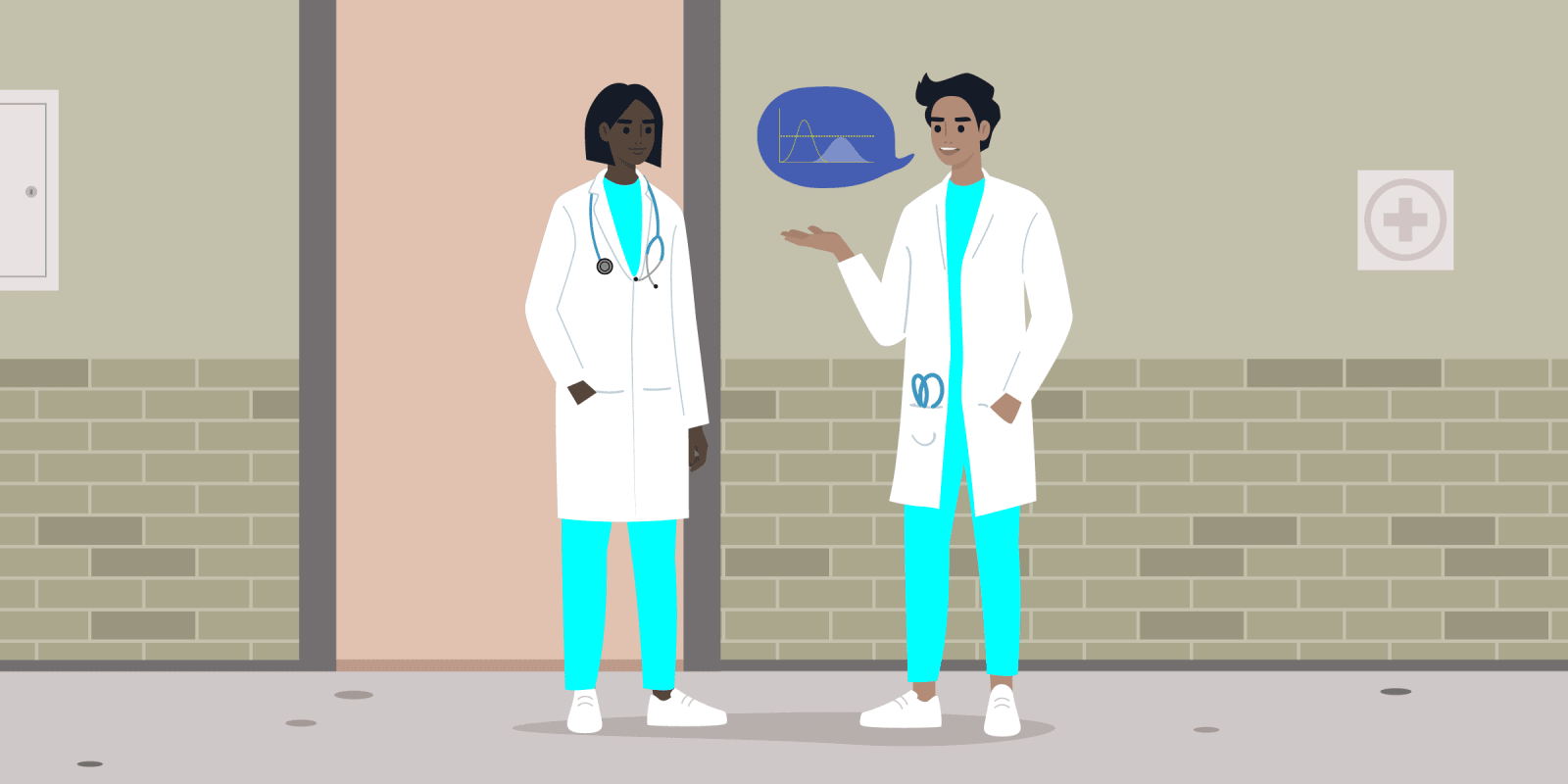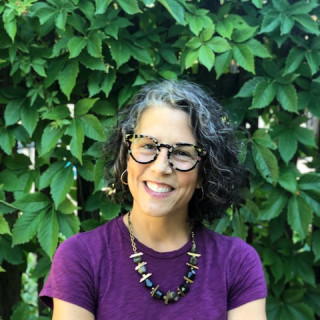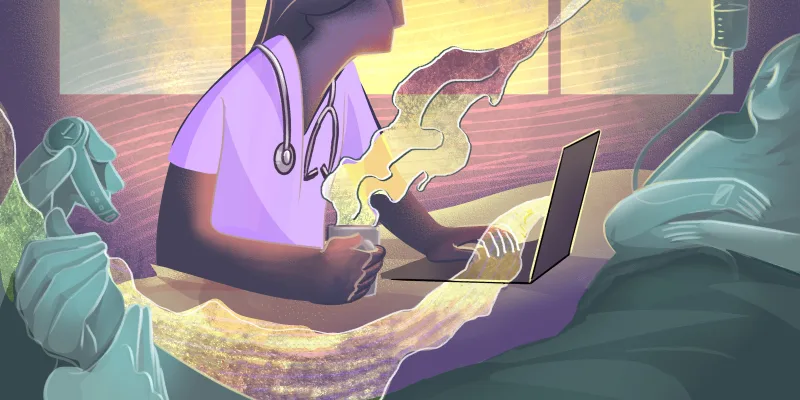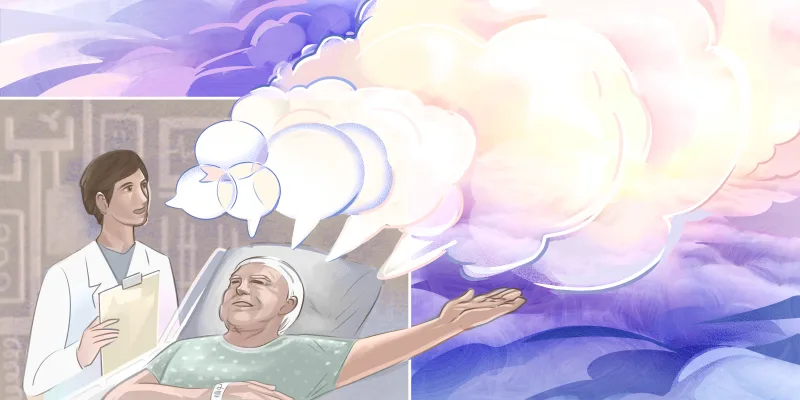Like most rites of passage, I experienced my residency graduation as a bittersweet amalgam of vague impressions and conflicting emotions. There was awkward conversation, overly enthusiastic laughter, rubbery chicken. Odds are, I was sweaty.
What I remember, though, is how I felt, which is unsurprising considering I had just completed my residency in psychiatry. I was extraordinarily proud. I had worked so hard, learned so much, and finally found my purpose and my people. I was filled with gratitude and admiration for the attending physicians who taught and mentored me throughout my training. I idealized these men (of course, they were all men) and basked in their attention. I have a vision of myself, eyes bright, smile not yet marred by cavernous nasal labial folds, drinking in their wisdom for the last time as if it were a fountain of knowledge and I a camel embarking on a journey across the desert.
After the ceremony, I was so excited to hear my then-husband’s impressions of these giants of psychiatry, expecting him to share my adulation. Strike one for the psychiatrist’s powers of perception. He responded that he thought they were intolerably pompous, consistent with how he experienced most doctors he knew, and he hadn’t been able to wait to escape their condescending pontification. I was devastated. Although I disagreed with his sweeping condemnation, I valued his opinion at the time, and had to admit he had a point. Most doctors have a compulsive need to be the expert, even in areas about which we may know very little.
Enter pansplaining.
The New York Times defines mansplaining as, “the act of a man’s unsolicited explaining, generally to a woman, something he thinks he knows more about than she does — occasionally at anesthetizing length — whether he knows anything or not.”
I define pansplaining as, “the act of a physician’s unsolicited explaining, generally to a nonphysician, something we think we know more about than they do — frequently at anesthetizing length — whether we know anything or not.”
In this usage, “pan” comes from the Greek, meaning “all.” We all explain everything to everyone, regardless of whether they requested our input, because we doctors think we know more about everything than everybody else does. Put more simply, because we know a lot about some things, we believe we know a lot about all things. (And, in my experience, the tendency to demonstrate one’s perceived expertise on every conceivable topic is found more often in male doctors, or "manpansplainers." As a female physician and feminist, however, I must acknowledge that pansplaining is an equal opportunity occupational hazard.)
Face it: we’re all a bunch of tiresome pansplainers. Of course, we come by this tendency innocently, by virtue of our training, our job description, and the magnitude of our responsibilities. I suspect there’s also some nature-nurture at play: many of us were probably dispensing advice out on the elementary school playground, too (assuming we weren’t skipping recess to work on extra credit assignments or lead student council meetings). Doctors are born do-ers; as children, we understood early that knowledge is power (or at least, instructional material for others), and sought approval through academic achievement. Hard work was the key to opportunity. The harder we worked, the more we accomplished, and with each success, more was expected of us. Measuring our self-worth by the metric of our achievements left us little choice but to try to develop a sense of mastery over, well, everything. Our pansplaining was, in essence, preordained.
It’s not surprising that medicine is a common pathway for the overachiever. Always being the expert, however, has its drawbacks: it’s exhausting, alienating to others, and interferes with our ability to seek help and support. It also limits our appeal in social settings. Just ask my ex-husband. For many of us, though, being a doctor is all-consuming and forms the basis of our identity — but have you ever wondered who you are when you’re not a doctor?
The first time I considered this question, I was terrified to realize I didn’t have an answer. Sure, I could generate a list of adjectives: mother, wife, daughter, blah-blah-blah. Fueled by the inexhaustible fire of neurotic self-reflection, however, I realized that none of these descriptors came close to capturing the essence of my true self. I was a doctor. I wanted to help people. They depended on me. I believed I needed to have all the answers. And my slavish devotion to a set of unattainable expectations had left me depleted, one dimensional, and frankly, boring as hell. I needed a way out.
Once I framed my penchant for pansplaining as a problem to be solved, I was back on solid emotional ground and my 5-point pansplaining treatment plan basically created itself.
1) Settle for mediocrity. Settling for mediocrity is easier than it sounds when you intentionally make it your goal to do so. Take, for example, my study of the Spanish language. Focusing on basic communication allowed me to eliminate verb tenses, rules of grammar, and entire parts of speech. Why learn vosotros when ustedes will do? What does the subjective tense even mean, anyway? I can’t tell you because I never learned it. But I can comfortably navigate my way around the Lima airport and chat with strangers while waiting for my flight.
2) Permit lacunas of ignorance. This one has been particularly easy for me, given my loathing of math or anything involving numbers. Allowing myself to reject any math more complicated than dosing venlafaxine has been my personal best in terms of self-compassion. (Why would you make a medication in 37.5 milligram doses, anyway?) Feeling comfortable telling my kids, “You know I don’t do math,” when they ask for help with homework quickly extinguished their requests (we hired a tutor). Lest you worry that I’m setting a bad example, my children know that despite my lack of aptitude, I completed two semesters of college calculus as a prerequisite for med school; they accept my explanation that as an adult, I have earned the right to opt out of math entirely.
3) Develop mastery but avoid assuming the expert role. I have been practicing yoga for almost two decades, and it is the cornerstone of my physical and emotional health. People often ask if I’m planning to become a teacher, an endeavor that requires hundreds of hours of training, both in a classroom and on the mat. Ten years ago, I was certain that the answer to this question was yes. After all, as the Bhagavad Gita explains, “yoga is the practice of tolerating the consequences of being yourself.” For me, a consequence of being myself is the urge to always be in charge. It’s also true, as my yoga teacher says, that the longer you practice yoga, the more important it becomes in your life and the less seriously you take it. As my practice deepened, I recognized the joy and freedom inherent in embracing the student role, in letting myself be taught. Letting go of control and trusting someone else to lead has been an unexpected and profound gift, one of the many yoga has given me.
4) Try new things, even when you suck at them. Most of us gravitate to things we are good at, and avoid things we’re not. Not knowing how to do something makes us feel foolish — just try playing tennis with your teenager after a 20-year hiatus (hint: use the extra-large balls that they make for toddlers who lack manual dexterity). But what if we approached new experiences as an experiment in letting go and having fun, without any expectation that we will achieve competence? This was how I ended up surfing several years ago on a yoga retreat in Costa Rica, both because it seemed fun and because it’s a mandatory component of the athletic, upper-middle-class white woman’s mid-life crisis. Learning to stand on my board and ride what could either be considered miniature waves or giant ripples was exhilarating. It was also entirely sufficient (see No. 1).
5) Stop asking, “What do I think others should know?” and start asking, “What am I meant to learn?” Approaching interpersonal interactions as opportunities for learning, as opposed to opportunities for teaching, has been deeply liberating. Recognizing that it’s not my responsibility to instruct others has freed me up to indulge my curiosity and let conversations unfold. Powerful and surprising things can happen when you let others be the expert, even if you know more than they do on a topic and you think they’re completely full of shit. For example, I recently listened to my cousin expound on why teenagers engage in cutting and stayed silent, recognizing that her need to be the expert was more important to our relationship than my desire to correct the content.
These are the steps in my less-is-more approach to self-improvement — though the careful reader will note that I just spent five paragraphs pansplaining how I learned to curb my tendency to pansplain. Let’s just say we are all works in progress and old habits die hard. Irony aside, I offer this article not as a set of instructions, but as an example of how I have approached my own discomfort with the recognition that I don’t have all the answers. In the not knowing, I am allowing myself the opportunity to learn even more. But since you haven’t asked, I’ll resist the urge to explain. Because I don’t do that anymore.
Do you always need to be the expert in the room? Be honest (in the comments).
Elizabeth LaRusso, MD, is a Harvard-trained psychiatrist who specializes in women's mental health and physician wellness. She lives with her family in Minneapolis. Dr. LaRusso is a 2021–2022 Doximity Op-Med Fellow.
Image by nadia_bormotova / GettyImages





